Beekeeping for Homesteaders
Sustainable Living Starts Here! Discover how beekeeping can transform your homestead into a thriving, self-sufficient haven.
Why Beekeeping is Essential for Homesteaders
Multiply Your Homestead Output Through Keeping a Beehive
Keeping a homestead can be alot of work in maintaining gardens, animals etc. You are missing out on some key leverage if you do not incorporate a beehive into that mix. Yes, you will need a little more work to produce some wonderful honey that captures all of the flavors from your land, but in return you will maximize your homesteads output through benefits such as enhanced pollination of your kitchen garden.
We have a growing community of homesteaders joining the colony to become beekeepers and finding the task as rewarding as it is productive. Getting to know your bees and watching them busy about as you tend to your homestead can be a great source of joy. Working with nature and not against, is a core tenant of homesteading and the addition of a beehive certainly helps to escalate the natural processes around your home.
More than just Honey, Beekeeping's Positive Impact On your Homestead
Pollination Power
Get the benefit of a beehive in your garden to turbo charge your harvest. Many gardners focus on fertilisation of the soil but overlook the importance of pollination in their garden. The use of a well placed beehive can cover not only your kitchen garden, but also the surrounding bio-diversity such as any orchards or food forests you may be trying to develop.
Sustainability Benefits
If you are trying to align your homesteading efforts with permaculture and sustainable farming practices, then a beehive is a logical choice. By using the principles of beekeeping to ensure a diversity in their environment allows you to seemlessly integrate the principles of permaculture design diversity. You are getting a double bonus as you either setup a bee paradise to support your permaculture, or a permaculture paradise to support bees. The symbiotic support system allows the pollinating permaculture plants to support the hive, while the waste produced by the beehive supports the soil fertility (and I will say again pollination) of your food forest.
Low Input, High Yield from Beekeeping on a Homestead
With your days limited, and plenty of chores to get to, you have to take on tasks which reduce your input while maximising your output. Beekeeping is a seriously low input task with a seriously high output productivity. The bees have learned over thousands of years how to build a hive, select a queen and make honey without any interaction required from humans.
Your job as a homesteader is to setup a wonderful environment for the bees to call home, keep out of their way while they produce their good, maintain a watchful eye to support their environment and then harvest a share of the honey at the end of the season. Observation is the main task of the beekeeper and acting when signs show for mites, mold or other diseases may show up. It couldn’t be simpler!
Beyond the Honey Jar: Beeswax, Propolis, and Home Remedies
Homestead DIY Bees Wax Products
While the honey output is great, this is not the only product of your hive. Beeswax has been used for centuries in a wide array of homesteading products including candles, salves, lip balms, and other homemade items. Learn how to make beeswax products and maximise your bees hard work by incorporating some of these project ideas into your next seasons rotation.
Recipes and Storage Tips for Homesteads
We know that the winter season is a long wait until productive sunny days, and with limited pollination, your bees will not be working through this time. As they survive on their wax capped honey stores, you too need to know how to preserve your hard earned goods. Find DIY recipes for beekeepers and key information on the refining/storage requirements for items such as honey, beeswax and propolis.
Natural Beekeeping Remedies for Self Sufficiency
Honey is an amazing product and when naturally produced, contains a wide array of proactive enzymes and antibiotics. A lesser known honey bee product is propolis which is often considered as “Black Gold” given the amazing antibiotic properties and wide variety of applications. There is amazing work coming out in the field of natural cosmetics around beesting therapies and bee venom facial creams are a huge selling aspect in the modern world. Find our how you too can harness these natural products in the most effective way possible.
Build Your Own Hive and Other Simple Projects for Self-Sufficient Beekeepers
If we wanted the convenient way of just ordering everything to our door, we wouldn’t be homesteading right? You can buy all of your beekeeping products from a shop, or even better you can DIY your beekeeping supplies using homesteading materials. Learn how to build a beehive, and then build three of them!
Learning the key principles of hive design and what to look out for allows us to rely on our own wits and not just what’s available in a shop. It is highly rewarding seeing a colony of bees living happily in the habitat that we designed and built ourselves. Read through our articles for plenty of DIY beekeeping projects to keep you busy!
A Symbiotic System: Bees, Livestock, and Companion Planting
Companion Planting for Beekeeping in a Homestead Garden
Companion planting in your garden is not only beneficial for beehives, but enhances the bio-diversity and therefore resilience of your environment. Ensuring you have plants which attract and support bees such as lavender, lemon grass and sunflowers also gives a bountiful crop of herbs, flowers and seeds that you can use in other areas. In addition, the waste produced from your beehive helps to improve the soil conditions and as we all know, enhanced pollination of your crops.
Integration of Livestock with Beekeeping on a Homestead
A good homesteader needs to be mindful of how the various aspects and animals on their homestead interact with one another, and beekeeping on a homestead is no different. You must carefully consider where to place your hives against the needs of your other animals for them to harmoniously co-exist together. On our property, the bees do not bother our chickens, sheep or the resident dairy cow however the dog certainly entertains herself by eating the spicy sky raisins from time to time.
Beekeeping and general hive management is a simple endeavour for any homesteader to tackle and the integration with your existing animals is only a small consideration for hive placement. Even if you encounter a colony with some africanized bee DNA, they will not go crazy and kill your other animals as some people fear. If persistent stings are occuring, then it is simply a matter of troubleshooting what environmental factors that your bees are missing!
Selling Your Homestead Beekeeping Products
Integrating and bartering with the local community is a wonderful social interaction and typically a key part of self sufficiency. We all know that what you produce in excess is often better put to use as a commercial trade for something which you don’t have. Honey is a great currency in this homestead marketplace as everyone has a use for it and that level of demand never diminishes.
But don’t simply limit yourself as a Honey Mogul, the wonderful by-products of beekeeping have amazing properties and can be “up-sold” into soaps, hair care products, skin care products and healthy adaptations as well. Beeswax and Propolis are a wonderful addition to the cabinet of any homesteader to make a number of amazing and highly useful substances for around the house.
So Get Started in Beekeeping on your Homestead Today!
Homesteaders often ask; what is the best season to start beekeeping and the answer is of course, right now! There is no better time to start your journey into beekeeping by informing yourself of the necessary steps to get into this amazing and productive adventure. We guarantee that you will make a few mistakes along the way, but you can be assured that you would make less by being informed up front rather than simple trial and error.
Once you get into this community, you will never look back. Beehives last for a very long time, they don’t require a heap of manual tasks and even if you just wanted to dip your toe by using native bees for pollination rather than honey production, you will still have access to several of these amazing outputs and get the added bonus of observing natures tiny workers doing their job in the garden.
Honestly, you can’t lose as a homesteader by getting into beekeeping, but you can make it even easier on yourself by networking in your local area. Check out our clubs and association guides to see what groups of beekeepers are available in your area right now. And if you still have a greater interest, why not check out some of our informational articles on beekeeping by heading to our beginner section to get a grasp on what treats you are in for.
Welcome to the colony!
Frequently Asked Questions
Homesteading is a lifestyle of self-sufficiency, where individuals grow their own food, raise animals, and reduce reliance on external systems. Beekeeping is a natural fit for homesteaders as it provides honey, beeswax, and pollination for gardens. It’s also a sustainable way to contribute to local ecosystems by supporting bee populations.
For homesteading, many choose honey bees due to their ability to produce honey and beeswax. Popular breeds include Italian bees for their gentle nature and productivity, and Carniolan bees for their adaptability to colder climates. Other bees, like Mason bees, are great for pollination but don’t produce honey.
Beekeeping doesn’t require a large space. A small homestead can support a few hives, as bees forage over a wide area (up to five miles from the hive). Make sure the hives are placed in a sunny location with a windbreak and access to water.
Bees can dramatically improve the yield of a homestead garden by pollinating plants. To attract bees, plant a variety of flowering plants that bloom at different times of the year. Herbs, fruit trees, and wildflowers are excellent options for providing nectar and pollen throughout the season.
Homesteaders benefit from beekeeping by gaining access to fresh honey, beeswax, and pollination services for their crops. Additionally, bees contribute to the health of the local ecosystem by supporting biodiversity. Bee products like propolis and royal jelly can also be harvested for medicinal uses.
Basic beekeeping supplies include a hive (such as a Langstroth or top-bar hive), a bee suit, smoker, hive tool, and frames. For homesteaders looking for eco-friendly options, natural bee hives like Warre hives are popular. You may also need a feeder for winter months and queen excluders to manage the hive effectively
Common challenges include pests like Varroa mites, unpredictable weather, and the availability of forage for bees. Homesteaders often adopt natural methods to manage these challenges, such as using essential oils or powdered sugar for mite control and planting diverse crops to ensure bees have enough food.
Sustainable beekeeping on a homestead can be achieved by using untreated wood for hives, avoiding chemical treatments, and practicing natural methods for pest control. It’s also important to leave enough honey in the hive so bees can feed themselves during the winter.
Yes, many homesteaders sell honey as an additional income stream. Selling honey can be done at local farmers’ markets, through community-supported agriculture (CSA) programs, or even online. Be sure to comply with local regulations concerning honey production and sales.
Start by researching local laws and best practices for beekeeping in your area. Begin small with one or two hives and ensure you have basic equipment. Homesteaders can also take beekeeping classes or join local beekeeping clubs to gain hands-on experience and community support.
Homestead Beekeeping Most Popular Articles
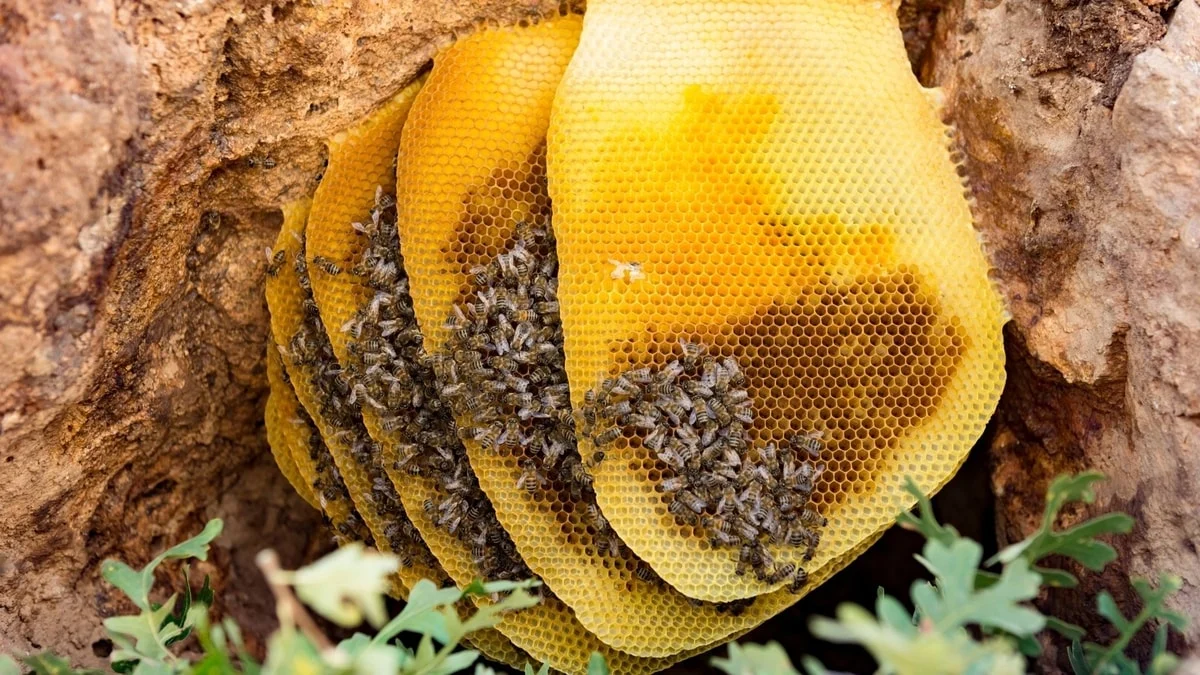
Ultimate Guide to Beehive Frames Without Foundation

The Best Beekeeping Equipment and Tools for Beginner Beekeepers
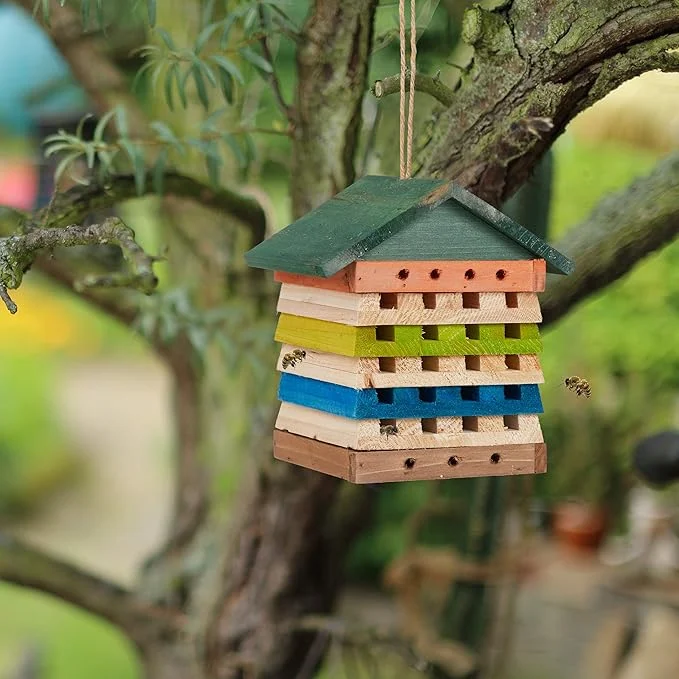
Ultimate Guide: Create Stunning Bee Hotels for Your Homestead
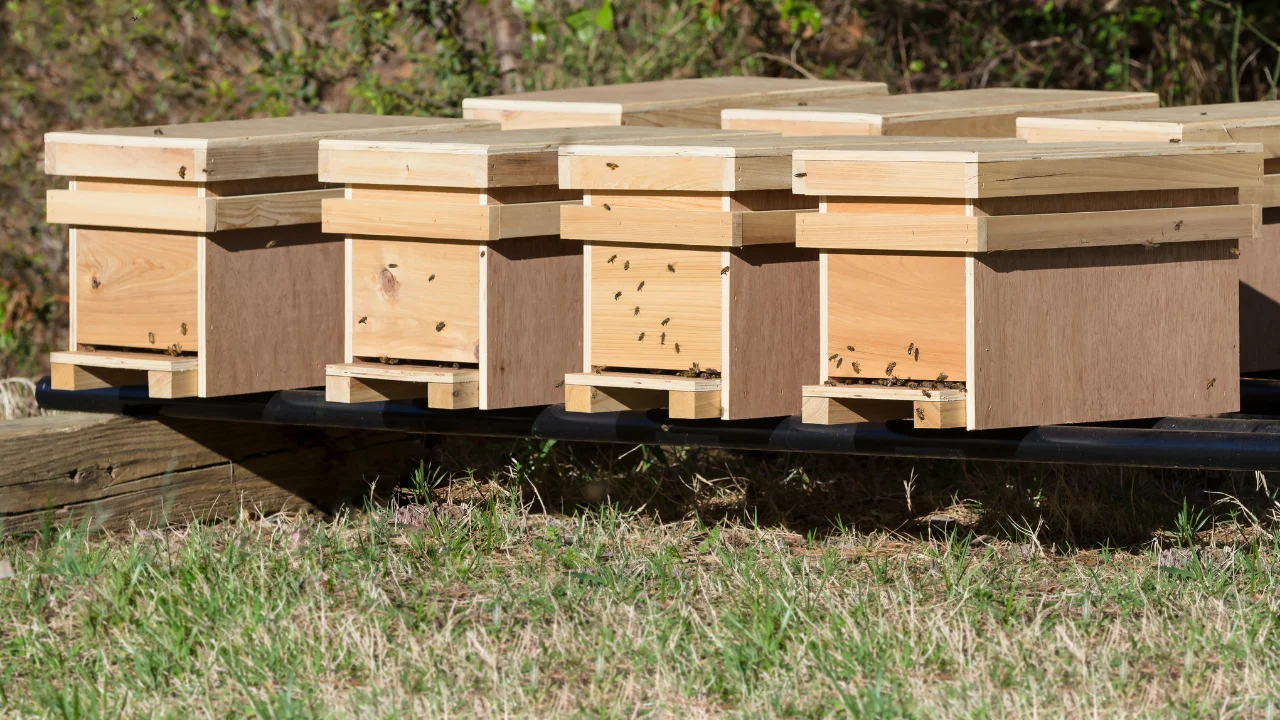
Ultimate Beehive Showdown: Pros and Cons You Need to Know

Ultimate Beekeeping Supplies: Everything You Need to Start

How to Use a Beekeeping Smoker: 5 Essential Tips

Honey Extractor: Finding the Best Equipment for Efficient Honey Harvesting
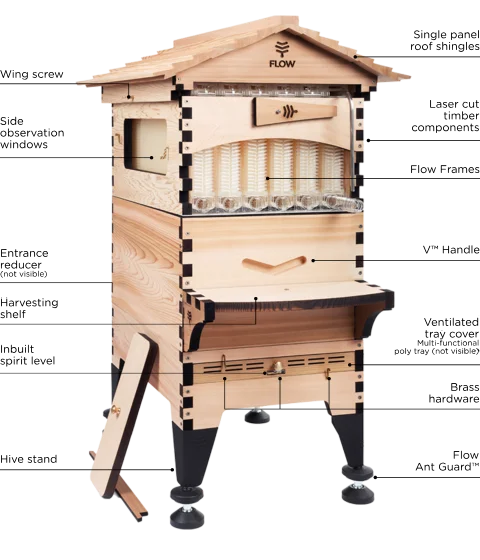
Is the Flow Hive Worth It? Ultimate Pros & Cons
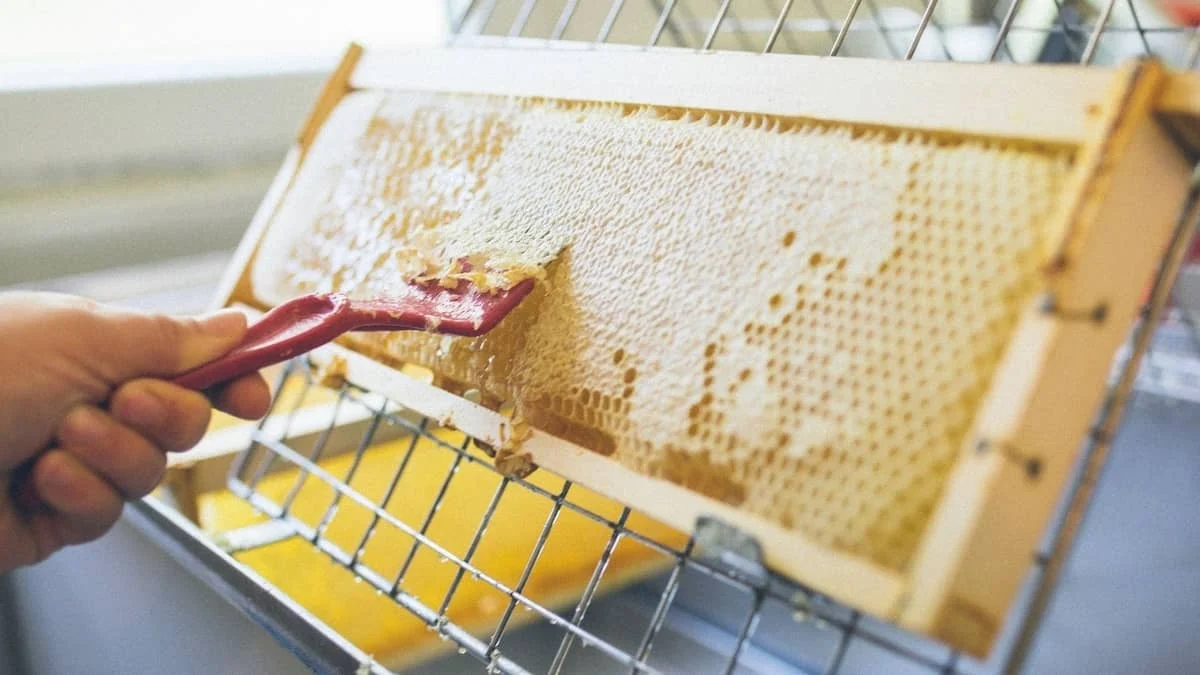
How Much Honey Per Frame?

Start Beekeeping Right: The Best Hive Kits for Beginners

The 7 Best Bee Feeder Types Available to Beekeepers
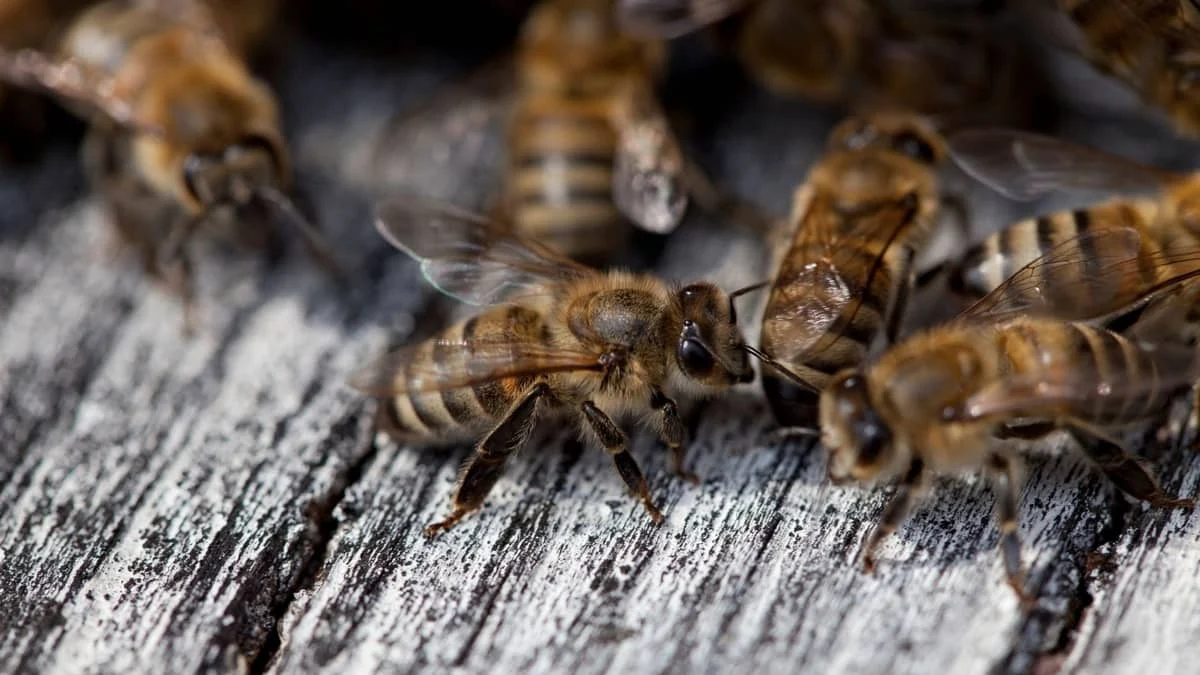
Want Bees? Here’s How to Get Them for Free or Cheap
About Us
Dr. Garth A. Cambray is a Canadian/South African entrepreneur and beekeeper with 28 years of experience in apiculture and specializes in adding value to honey. His Ph.D. research developed a new advanced continuous fermentation method for making mead that has resulted in a number of companies globally being able to access markets for mead. His company, Makana Meadery, exports honey mead to the USA where it is available to discerning connoisseurs.
He has also developed technologies to commercially manufacture organic honey vinegar in Zambia for export globally. He holds a few patents globally in the ethanol industry and believes in technology and knowledge transfer for human development and environmental sustainability. One of his proudest achievements is the fact that the wind farm he started at one of his old apiary sites has essentially made his hometown carbon neutral.

